It seemed like I had been drafting the email in my head for months- no, years- but sitting down to finally do it felt more daunting than scaling Mount Everest.
Well, maybe not quite that challenging, but it was certainly one of the biggest challenges I had ever encountered. And yet, even if the words didn’t want to come from my fingertips and appear on the screen before me, I knew it was the right choice for me. I knew that quitting grad school and moving forward in a different direction was important for both my career and my life.
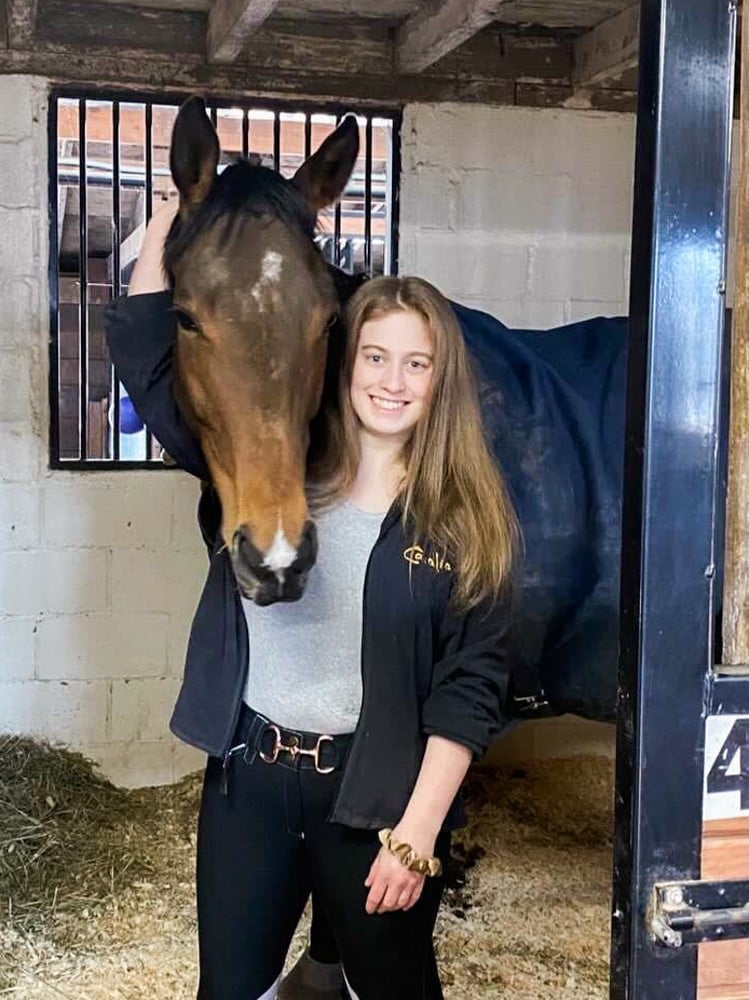
This Is My Story Of Quitting Grad School & How I Came To That Decision
Ever since I started my undergraduate degree over a decade ago, I always felt like I had ambitions for higher education. But if someone were to ask me why, or what I was planning on doing with more degrees, I didn’t necessarily have an answer. It simply felt like the right path forward. In reality, deep down it was because I had no idea what sort of career path I wanted.
While everyone around me had aspirations of a particular job, I simply settled on an academic career because it felt safe. I had been a student my entire life. I knew nothing different. But the biggest factor was that I knew I was good at being a student. Why would I stop doing something that I had been excited about for years?
I Tackled Not One, But Two Graduate Programs
My first graduate program was a Master of Arts degree in forensic psychology at the George Washington University in Washington DC that I finished in three semesters. It was a very straightforward, clinical-oriented program that set me up to work somewhere in psychology and/or criminal justice- a prison, perhaps. Or a courthouse.
I had been drawn into psychology and criminology initially because I’m a huge true crime nerd (podcasts, documentaries, and murder mysteries- oh my!), but also because I have a passion for social justice and criminal justice reform. I majored in sociology in undergrad, with an emphasis on criminal justice, and really fell in love with all the new knowledge I was gaining. My MA was no different. But that didn’t seem like enough school for me.
The idea of transitioning into a 9-5 life felt daunting, terrifying, and impossible.
I clung onto the idea that I was only good at one thing- being a student- so I applied for my next program. This time, I enrolled in a graduate school for a Master’s Certificate in terrorism analysis at the University of Maryland. I had completed my undergraduate thesis on terrorism analysis and knew I could successfully continue down that path.
I was leaning toward working in terrorism research, but could never fully articulate what that would look like. I kept hoping that I would have an ah-ha moment and fully know what I wanted (spoiler alert: that never happened). By this time, people really knew me as a career academic, and I wore that badge with a lot of pride. Looking back, I was actually just masking.
Mixing ADHD & Grad School Together Is Hard
Because of my diagnosed ADHD, I have a lot of difficulties with, not doing things that are difficult but simultaneously also doing everything I can do to absolute perfection.
Instead of tackling my mental health challenges and finding a suitable career path, I “masked” myself as someone who absolutely loved school, research, challenges, and the grad student identity. In reality, I was afraid to try something new and set myself up for a successful future.
My experiences with ADHD may not look the same as someone else’s, but I crave both freedom and flexibility along with rigid structure, which seems like the ultimate contradiction. I had dealt with this throughout my life by setting up small moments throughout my week that had intense structure (typically very close to a deadline, such as the night before a paper was due) where I would get everything done with a few minutes to spare. The rest of the time, I lived without a lot of guidance or support.
This worked well for when I was taking traditional classes, which is how I was so successful in undergrad, my MA, and my certificate. But once your academic career takes a turn toward independent research, things can get a lot messier.
Plenty of brilliant neurodivergent minds thrive in post-graduate life, but it completely depends on the individual. I wish I had worked with an ADHD therapist long before I finally did, as having that sort of guidance and experience may have changed how I have lived the past ten years of my life. For the most part, however, I was so far masked into the academic identity that I was looking for whatever I could to stay on that path.
The Final Chapter: Getting a PhD (Or So I Thought)
Once my certificate was over, I knew I was running toward the end of program advancement. The only degree left on my trajectory was a PhD, a title I had always revered but didn’t know if I could do. Honestly, I didn’t really want a PhD, because I didn’t enjoy the research aspects of academia, but it seemed like the only direction I could take. But I didn’t think twice, and I started a doctoral program in criminal justice.
There are a lot of parts of being a graduate student that really jive with me. I love taking classes, writing papers, taking exams, and the feelings of accomplishment that come from reaching program milestones. I also developed a love for teaching, and was ecstatic to begin teaching my own undergrad sections after two years in the program.

Most notably, I started doing something I had never done before, in my entire five years of being in grad school- I started thinking about quitting.
I pushed that thought away for literal years, which is bonkers to look back on! I denied myself the opportunity to close a chapter that wasn’t working for me and to begin a new adventure because I was so scared of change and of finding myself outside this crutch I had created.
After the pandemic locked down the New York City metropolitan area (where I currently live) and I was forced to stay inside and do nothing but think about my life and my future, I knew that it was time to challenge my fears and seriously consider leaving. Although the past year has been tremendously difficult all over the world, New York City has dealt with a particularly brutal blow of economic collapse, unbearable sickness, and far too many lost lives.
As I watched thousands of my neighbors die every day, it dawned on me that I was wasting the precious life I had by forcing myself to stay in a position that did not benefit me financially or emotionally anymore.
The Culture Of Quitting Grad School Is Toxic
As difficult as staying in the program felt like at this point, I knew that leaving would have its own set of challenges. I was terrified of letting people down- who these people were, I wasn’t sure.
I had never been pressured into post-graduate programs by anyone except myself. I was also so scared of the Great Unknown, aka finding an actual job just like everyone else I know has. But the constant anxiety of being in a program that no longer suited my needs was not the best way to live, especially during an already stressful and taxiing global pandemic!
There is no reason to stay miserable doing something that isn’t even paying well when you don’t absolutely have to.
That was when I dove headfirst into the search engines. I typed keywords like “dropping out of grad school reddit” and “I want to quit grad school” and “quitting phd regret” hoping that maybe I would find stories or articles from people like me, who had created this unrealistic expectation of masking their way through academia because it was safe and because the alternatives were too uncertain.
I wanted someone to take my hand and say, “Sarah, it’s okay to change your mind. Leaving academia doesn’t make you a failure. Plenty of other grad students leave and nobody thinks less of them!”

Unfortunately, that’s not what I found. There is a toxic, capitalist mindset in most industries, and academia is not immune to it. Articles written by people (mostly men) about wanting to quit graduate school ended with them deciding that finishing the degree was more important than nurturing their individual wants and needs.
There is even a well-known old wives’ tale where a grad student tells their advisor they want to quit school, and their advisor informs them that they will want to quit three different times throughout their program and the most important thing is to not do it. What a bunch of BS!
In The End, I Did What Was Best More Me: Quitting Grad School
I knew I was coming to the right decision for myself when I wasn’t discouraged after reading these ridiculous articles. The most important thing is to do what is best for you- for some folks, that may be staying in their graduate program.
For others, it may be the opposite. As more time passed, it became freeing to tell not only myself but also others that I don’t want to go to grad school anymore.

The reactions from my friends and family have been nothing but positive. Turns out I had built all those expectations up myself, and nobody was absolutely married to the idea of me having the title of doctor. I am perfectly capable, plenty smart, and totally fine exactly as I am, no matter what acronym follows my name when I’m signing off on an email.
My mental health had gotten me both into the PhD program but also out of it. I recognize that my ADHD had convinced me that I would only ever be good at school and that doing anything else was too challenging, thus propelling myself down the path of endless degrees and eventual dissatisfaction.
But I also know that by listening to my anxiety and not continuing to push it down and pretend it didn’t exist is what helped me to recognize that I needed to change my course. I finally took the mask off, the one that had convinced myself that I was happy being a career academic.
Instead, now I get to move forward and find a career as my true self, no mask required (except to protect myself from communicable diseases!). It won’t be easy to find a job during a pandemic and a recession, but that challenge is one I am finally prepared to take.
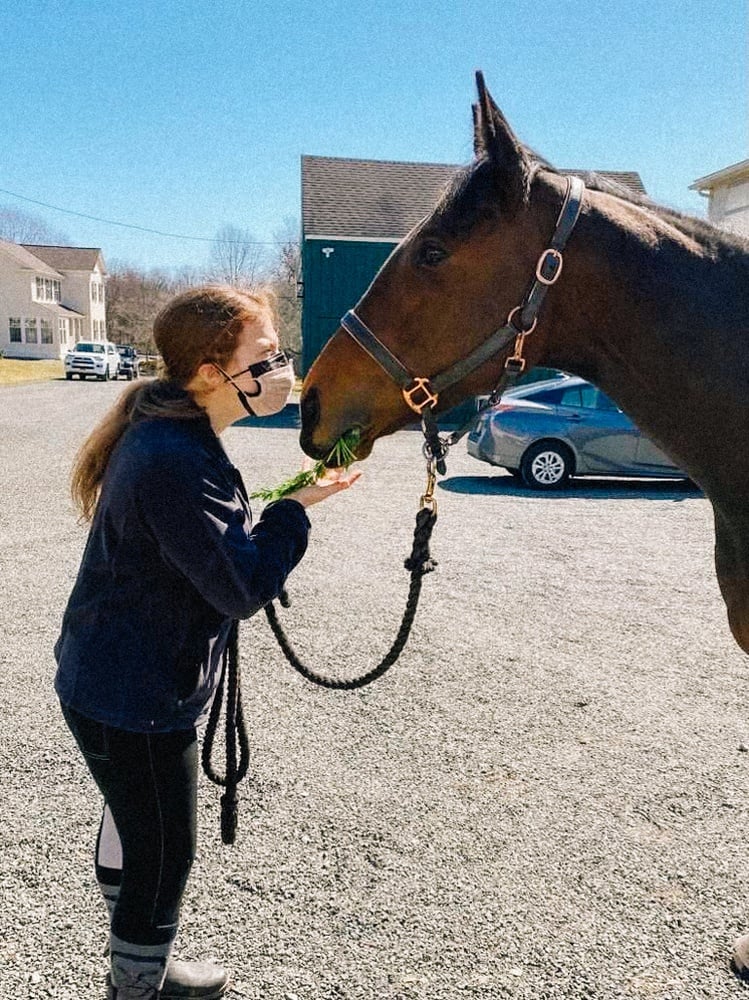
Grad School Is Not a One-Size-Fits-All Institution
Grad school is not a one-size-fits-all institution. I have no regrets getting my MA and my additional certification. I’ll also be able to transform the work I’ve done with my PhD into a second MA in criminal justice, so at the end of the day, I don’t even regret what I’ve done with that program, either.
So many people thrive in grad school, whether it’s an MA or an MS or a PhD or one of the dozens of other degree programs. Higher education breeds brilliant minds and groundbreaking research every day. But that doesn’t mean that everyone who is going to make a difference has to reach that level of education. I am not one of those people. And that is okay.
The 4 Questions To Ask Yourself Before Quitting Grad School
If you are considering jumping into graduate school- or if you are in the midst and aren’t sure if you want to stay- here are some of the questions I had to honestly ask myself before I came to my own conclusion:
- What is the end goal? Is it just for the title? Or will the additional schooling aid in your career in some way?
- Are you ready to be competitive? Especially in doctoral programs, funding is a major concern and you will be up against hundreds of equally as qualified prospects at a chance to be able to afford your research.
- Can you afford to be a full-time student? Graduate students make notoriously little pay, even living in a place like the New York City metropolitan area. Many schools put limits on how much extra money you can make, whether that is through having a 2nd job or side gig, or the number of courses you can teach. There also isn’t a lot of time to hustle for more cash, especially when you begin working on your dissertation.
- And finally: Who are you doing it for? Is this because you feel like you don’t have other options or that you’re only good at school? I can guarantee that you are capable of other things, even if your life has followed a similar academic-oriented path like mine.
The final hurdle was to begin the official leaving process. I knew it was going to be challenging, but at this point I was ready. After staring at the open blank email for far longer than I needed to, I finally took a deep breath and let myself be the most authentic any of my colleagues had seen in years:
Dear Advisor,
I am writing to let you know that I will be leaving the PhD program at the end of this semester.


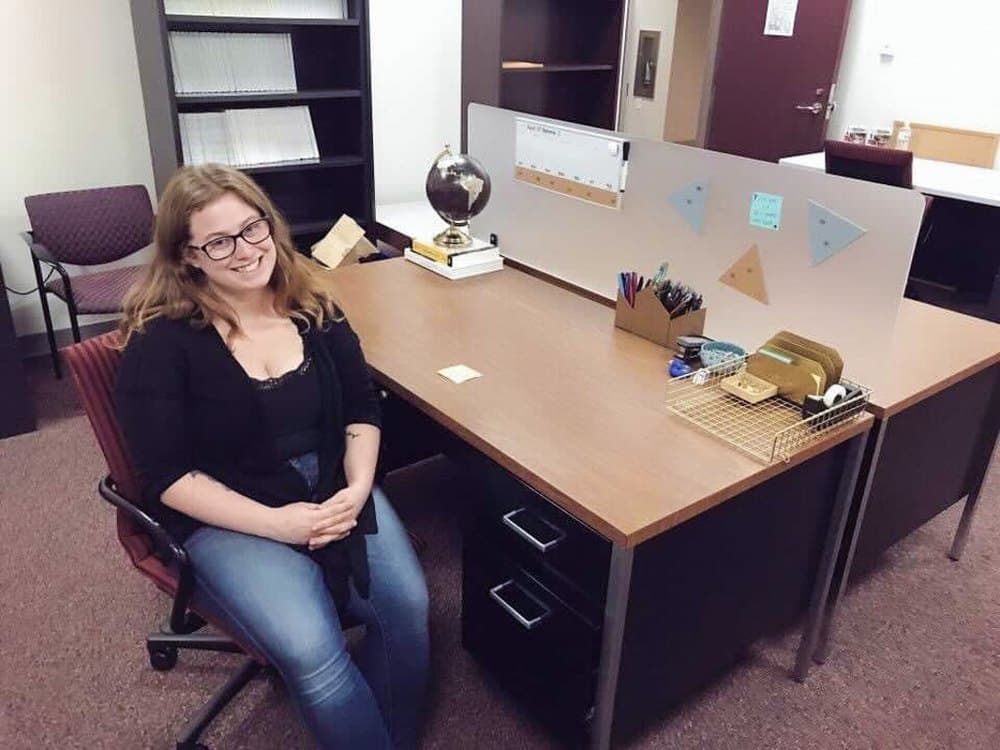

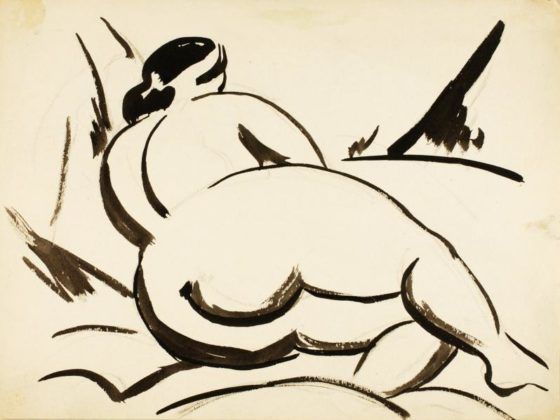
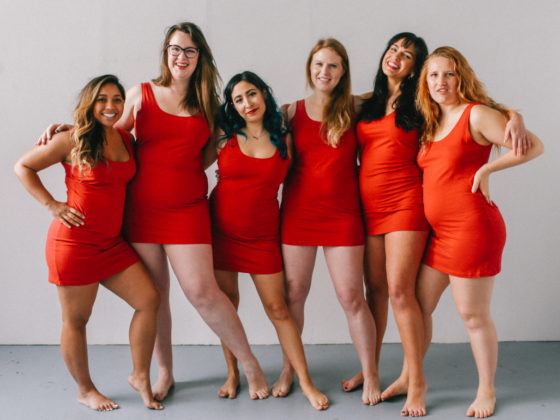
15 comments
Hi, Sarah. I came across this article after thinking about my own plans and googling to find other people’s thoughts on the subject. I’m a nurse working in the frontlines during this pandemic, and I had this brilliant idea to return to school to possibly expand my nursing options outside of bedside (long story short: burnout). I started graduate school and realized pretty early on that while I love the learning aspect of it, I have many other personal learning interests (like languages, which I’ve been learning on my own for 10+ years–far longer than my career as a nurse), ones that help me cope with depression and anxiety, that are being put aside because school is taking up so much of my time. I’m at that point where I am considering quitting altogether, and I think your post helped ease my anxiety about quitting and feeling like a failure. I’m still feeling icky about it all, but I’m getting there. Thank you for sharing your story–it’s helping me with mine.
I quit because I was miserable and because my supervisor would play mind games with his grad. students. He’d get his most experienced student (2nd in command), to say things in private like, “Research is hard, so don’t make people feel bad.” i.e. don’t ask questions. So, in meetings, everyone would shut up, and would be afraid to speak, expect him of course. I caught them once as they were laughing, coming out of his office, looking at me at they were laughing. It was like the Ellen DeGeneres show. People were paranoid about they’re research, about other people, it was hard to make friends, people had their own cliques and I would catch people who I’d work with, go for a smoke together and vent, then walk in and pretend everything was ok. No matter what anyone tells you, there’s no one you can really trust. Do yourself a favor, and enjoy your life. Just enjoy your life.
I quit because I was miserable and because my supervisor would play mind games with his grad. students. He’d get his most experienced student (2nd in command), to say things in private like, “Research is hard, so don’t make people feel bad.” i.e. don’t ask questions. So, in meetings, everyone would shut up, and would be afraid to speak, expect him of course. I caught them once as they were laughing, coming out of his office, looking at me as they were laughing. It was like the Ellen DeGeneres show. People were paranoid about they’re research, about other people, it was hard to make friends, people had their own cliques and I would catch people who I’d work with, go for a smoke together and vent, then walk in and pretend everything was ok. No matter what anyone tells you, there’s no one you can really trust. Do yourself a favor, and enjoy your life. Just enjoy your life.
Thank you. I am really struggling in my first semester of my program and I’ve thought about quitting many times. I keep comparing my mentality to undergrad because back then I never thought about quitting. But, after reading this, I’m realizing that struggling is okay and sticking with it through the struggle is also okay because this program is exactly what I need to advance my career. Your questions did not make me question my being in grad school, it actually reaffirmed that this is exactly where I need to be because I would not be leaving for the right reasons. Thank you.
Hi,
I came upon your post. And lately I have been dreading grad school lately I am currently in my second term and I am in a position where I just dont feel like trying anymore. I am currently in probation and failing my exams and feeling behind. I noticed that I have been doing it for the wrong reasons for financial gain which is nice but the only reason and not to disappoint my family. I am tired of school and coming straight into grad school from undergrad does not help. In the past 2 months my mental health has taken a toll now its every other day where I just don’t feel like doing anything. I answered your questions and I realize school is all I know which is part of the reason why I kept going. Withdrawing feels almost like a release. I have not told my family this although the outcome is beautiful with helping so many people but I dont want this to be the only way for me to help people by getting a degree and I am terrified because of it being a mistake . I am 24 and I am not financially dependent, havent seen my friends, I dont go out because I cannot afford it, it is becoming too much. Anyways thank you for this post ive got some deep reflection and a big decision to make.
I am currently in the second semester of my 2-year grad program for clinical social work. I only go into as a back up degree just in case my dream of working as a circus artist fails or a massive injury. If I stick with this program and work in other fields after my career, I would like to aid transpeople to find services and be their mental health counselor throughout their transition. but I am taking a federal loan on top of my unpaid student loans from undergrad. I am really nervous and feel so unmotivated to do this program since it is my “Back Up”. Wouldnt it has been smarter to start the circus career than apply for the grad program? is there the possibility to stop and take a leave of absence? Having ADHD and not in a good living situation is not helping.
Hi Sarah. thank you for sharing your story. Reading yours and other people on the comment section made me feel understood and less lonely in this journey. I’m in my last semester of my master study, currently working on my research. It’s my 4th year now, I actually already think of dropping out last year but I came back since it’s hard to get a job nowadays, and I didn’t want to disappoint my family and friends, so I convinced myself that I must finish this. I did the best I could, but the department is so toxic, judging by the system and by many students couldn’t finish on time and many decided to quit. I bear with the abuses of power in our department, but now I finally reached the point where I cannot tolerate it anymore. I did a great job as student, I treated everyone politely even tho some did me dirty. I used to be so passionate about Pscyhology, but I lost the spark now, I didn’t believe in it anymore, and the people working on that field, and I wish I could unlearn it. I answered your questions and now it’s confirmed, I’m dropping out for real this time, and I’m excited to start a new game 🙂
Hi Sarah!
Your story has helped me in the process of understanding what I really want to do. For me, college and university were a means to make my family proud, but to be honest, it has made me unsure of who I am (I guess imposter syndrome is the best way to describe it). I already have a B.S. in Psychology and it has opened doors to work for the county I live in and being able to work as a teacher in daycare (which I absolutely love), yes it may sometimes limit where I can work, but having experience in conducting presentations, writing papers after papers, and communicating with other people is a major boost. I am at the point that I will be dropping the class I am currently taking (I have to pay for school since I refuse to take out student loans, so just the one), but I have no idea how to explain my decision to my family when they have already placed all these expectations on my shoulders. So quick question, would the step after that be withdrawal from the educational institution I am going to?
Hi Sarah,
Thank you for sharing your story. It resonated with me a lot. I am a 1L and this is my first semester (week 6). For 8 years, I was hyper focused on getting A’s and producing the highest quality work I could. I did all this, but at the cost of actually taking the time to consider what I was interested in. I ended up applying to law school since it was the only next step, I thought was viable. I figured, “Even if I don’t like it, I’ll eventually find something in it that I have a motivating passion for. If not, at least the JD attached to my resume might get the attention of employers”. Now that I am in law school, it feels like I have had a huge fall from academic grace. I mentally, physically, and psychologically have not felt like myself. I was hesitant to write my resignation letter, let alone submit it. But reading this article has given me that much needed perspective I was not paying attention to. I used to think, “There’s no turning back now. You’re knee deep in it”. I realize now, “Yeah, I am knee deep, but the good news is, I’m only knee deep”.
Hi Sarah,
I know your article is a couple years old by now, but it still very much resonates in 2023. I’m just starting my 3rd year (out of 6+) in my PhD and I am utterly miserable. My stipend is horrible and I’m struggling financially, I’m not even happy to go into lab anymore and often find myself struggling to get out of bed every morning, and I get very little help from my colleagues in lab which means my progress has been slow and my experiments haven’t been working out. I’ve been sitting with the idea of leaving my program for months, but I truly don’t know if I want to stay in biomedical science research or if I want to abandon the field altogether. I think the lack of a landing point after leaving is what’s keeping me from doing it. There are days where I think I’d be happier as a barista than staying in science so I wouldn’t have to think so hard anymore. Thanks for sharing your story, it’s definitely got me reflecting on how to prioritize my happiness.
This was a really insightful read! It’s so important to pause and ask yourself honest questions before making a big decision like leaving grad school. Reflecting on personal goals, future plans, and financial implications can help clarify your path. For those continuing or looking for additional academic support, I recommend checking out APDM (Aplikasi Pangkalan Data Murid). It’s a resource that focuses on effective learning strategies and data driven insights. Thanks for sharing your story!
Managing finances wisely is crucial in today’s world. Whether it’s budgeting, investing, or securing loans, having the right financial partner can make a difference. Reprise Financials reprisefinancials.net offers tailored solutions to help individuals and businesses achieve financial stability.
li05ey
4n6vaa
Saved ass a favorite, I loove our blog!